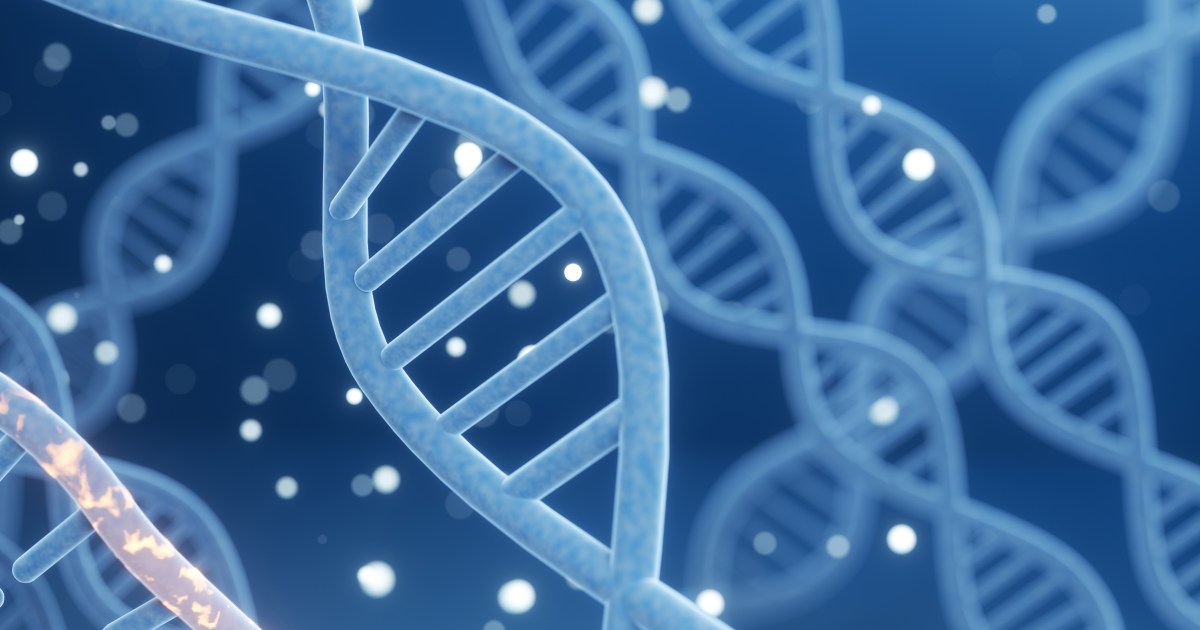In 2023, Jill Martin experienced a life-altering moment when she underwent genetic testing for breast cancer. The test revealed she has a BRCA2 mutation, significantly increasing her risk not only for breast cancer but also for other cancers such as ovarian cancer. Prior to this revelation, Jill had undergone both a mammogram and a sonogram which produced normal results. It wasn’t until she received her genetic testing results and underwent a breast MRI—initially in preparation for what she believed would be a preventative double mastectomy—that she learned of her breast cancer diagnosis.
“Had I taken it earlier, I wouldn’t have had to go through endless surgeries and chemotherapy and radiation,” Jill told TODAY.com. “Genetic testing is power, not something to be scared of.”
To underscore the value of genetic screening, TODAY is organizing an event inviting participants to sign up for DNA testing on October 1. Those interested can take part at the TODAY Plaza and watch the event on the show.
“It’s a spit test that takes seconds,” Jill explained, emphasizing the empowerment that comes with knowledge. “Oct. 1 is about empowering yourself as a warrior with knowledge.”
Who Should Consider Genetic Testing?
Dr. Elisa Port, director of the Dubin Breast Center at Mount Sinai’s Tisch Cancer Institute, shared important criteria for determining who should undergo genetic testing to assess their breast cancer risk. “Anyone with a family history of breast cancer or ovarian cancer, particularly in a relative diagnosed at a young age, should consider getting tested,” she advised. She noted that risks extend beyond those typically associated with breast cancer, including potential links to pancreatic and prostate cancers.
Dr. Port, who is also Jill’s physician, highlighted that certain ethnic groups are at a higher risk of carrying genetic mutations and should consider testing. She specified, “It is important to know that while any ethnic group can have the gene, it’s most common in Jewish people of European descent, known as Ashkenazi Jews. One in 40 Ashkenazi Jews will carry this gene.”
Following a breast cancer diagnosis, it’s common for doctors to recommend that other family members also undergo genetic testing. Dr. Arif Kamal, chief patient officer at the American Cancer Society, indicated that the eligibility guidelines for cascade testing have evolved: “If that person is positive, their immediate family members should also be tested.”
For those curious about their family history and genetic risk, Mount Sinai Tisch Cancer Center offers a BRCA risk assessment tool.
Key Factors to Consider in Genetic Testing
For individuals deemed at high risk for breast cancer, healthcare providers can order genetic tests that are often covered by insurance. Kamal urged those without a clear genetic risk or uncertain family histories to consider commercial tests while keeping three critical factors in mind when choosing a test:
1. Comprehensiveness:
Opt for tests that analyze multiple genes associated with breast cancer rather than focusing solely on BRCA1 and BRCA2. “It’s important for tests to be comprehensive and thus cover all major genetic mutations linked to breast cancer,” he remarked.
2. Interpretation of Results:
Choose a test that provides a clear explanation of the findings, detailing mutations that are known to be associated with breast cancer versus those of uncertain significance.
3. Access to Counseling:
Ensure the testing service connects you with a genetic counselor who can help make sense of the results. According to genetic counselor Dena Goldberg, counselors play a vital role in discussing how findings can influence future health and cancer screening recommendations.
Navigating Test Results
Kamal suggests that individuals who undergo genetic testing consult with their doctor or a genetic counselor upon receiving results to avoid feeling overwhelmed. “We absolutely would recommend a conversation, probably with a genetic counselor,” he stated. “There is no doubt that there will be an overwhelming amount of information that will come back.”
Genetic testing results don’t always yield clear outcomes. “The report is going to come back and say we looked at 300 different genes, and this one’s a little off and this one’s a little off,” Kamal explained. Without proper guidance, the flood of information can lead to anxiety.
Positive results for a BRCA mutation could mean heightened surveillance or preventative measures. For those identified as BRCA1- or 2-positive, preventive MRI screenings may begin at 25 years of age, with mammograms and MRIs starting at 30, and options for preventative surgeries like mastectomies also considered.
The Need for Regular Screening
It’s important to recognize that women without known genetic predispositions can still develop breast cancer, even if they are considered to have an average risk. “An average woman’s lifetime risk of breast cancer is one in eight,” Kamal noted. He explained that about 90% of breast cancers arise from factors beyond familial genetics, which might include environmental or lifestyle elements.
Consequently, women of average risk should begin regular mammogram screenings at age 40. Dr. Port lamented that, “only 60% to 70% of women who should be having mammograms do that.” Regular mammograms are crucial, as early detection often leads to better outcomes. “For average-risk women, they should be doing a mammogram once a year,” Kamal concluded. “Finding breast cancer early is key, as it tends to be less aggressive compared to genetically driven cases.”






